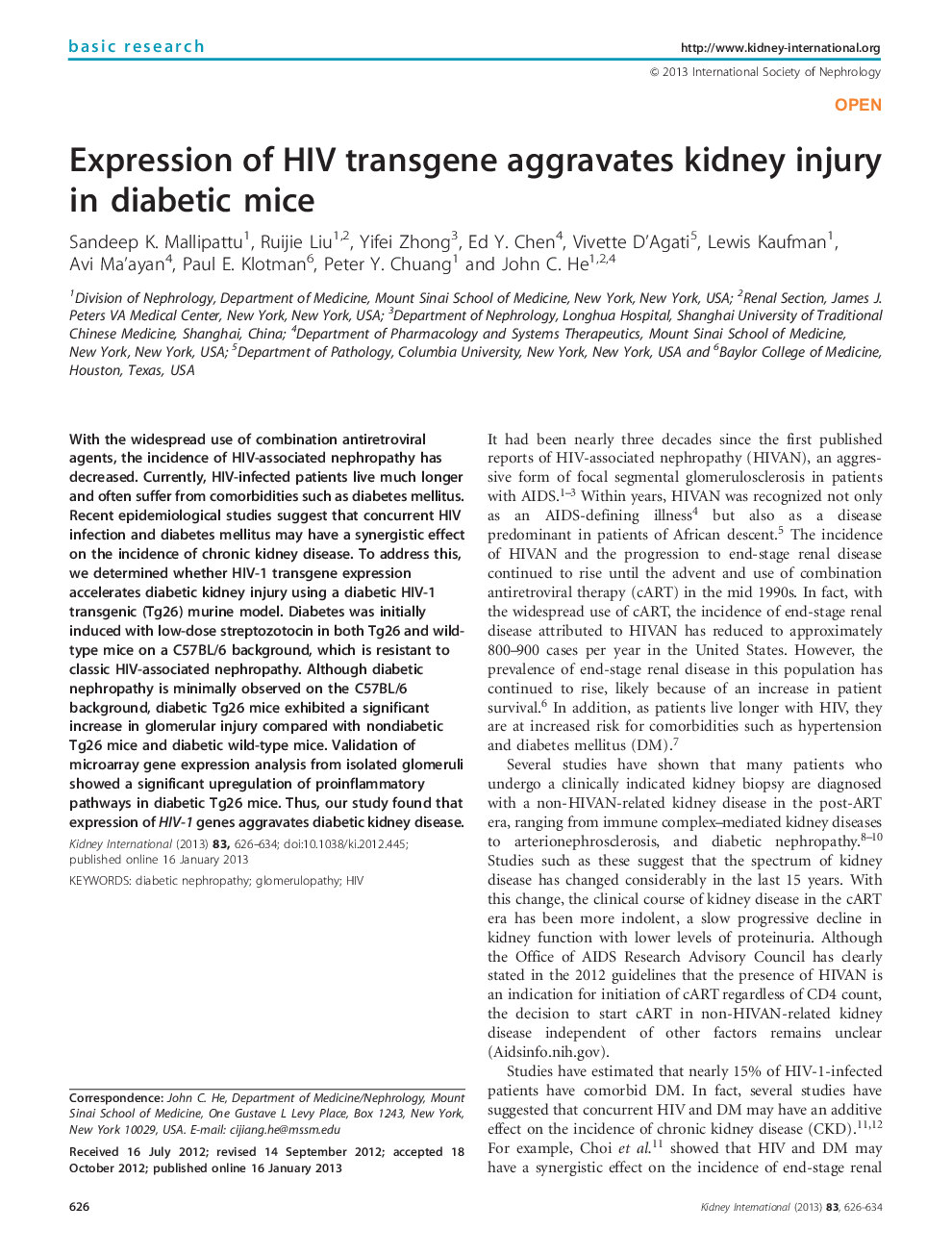| Article ID | Journal | Published Year | Pages | File Type |
|---|---|---|---|---|
| 6162163 | Kidney International | 2013 | 9 Pages |
Abstract
With the widespread use of combination antiretroviral agents, the incidence of HIV-associated nephropathy has decreased. Currently, HIV-infected patients live much longer and often suffer from comorbidities such as diabetes mellitus. Recent epidemiological studies suggest that concurrent HIV infection and diabetes mellitus may have a synergistic effect on the incidence of chronic kidney disease. To address this, we determined whether HIV-1 transgene expression accelerates diabetic kidney injury using a diabetic HIV-1 transgenic (Tg26) murine model. Diabetes was initially induced with low-dose streptozotocin in both Tg26 and wild-type mice on a C57BL/6 background, which is resistant to classic HIV-associated nephropathy. Although diabetic nephropathy is minimally observed on the C57BL/6 background, diabetic Tg26 mice exhibited a significant increase in glomerular injury compared with nondiabetic Tg26 mice and diabetic wild-type mice. Validation of microarray gene expression analysis from isolated glomeruli showed a significant upregulation of proinflammatory pathways in diabetic Tg26 mice. Thus, our study found that expression of HIV-1 genes aggravates diabetic kidney disease.
Related Topics
Health Sciences
Medicine and Dentistry
Nephrology
Authors
Sandeep K. Mallipattu, Ruijie Liu, Yifei Zhong, Ed Y. Chen, Vivette D'Agati, Lewis Kaufman, Avi Ma'ayan, Paul E. Klotman, Peter Y. Chuang, John C. He,
